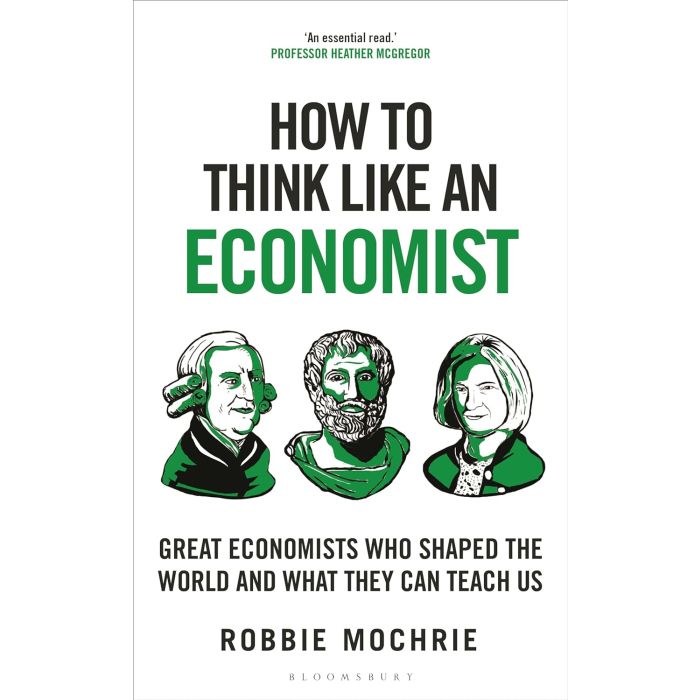My Cart
Your cart is empty
Looks like you haven't made your choice yet.
- Subtotal
How to Think Like an Economist

Great Economists Who Shaped the World and What They Can Teach Us
- Bloomsbury
- by Robbie Mochrie
More Information
| Publisher | Bloomsbury |
|---|---|
| ISBN | 9781399408622 |
| Author(s) | by Robbie Mochrie |
| Publication date | May 2024 |
| Edition | Hardback |
| Dimensions | 222 x 143 mm |
| Pages | 288 |
| Language(s) | English ed. |
Description
Capturing the essence of history's most influential economists in enjoyable and illuminating biographical sketches, this book shows how the great economic thinkers are still relevant today.
We live in the economy - and we are part of it. Living through a pandemic, governments had to work out how to put economies into a deep freeze without destroying them. Avoiding climate catastrophe means changing economies so that they don't bake the world.
In explaining how economic thinking is indispensable to tackling these huge problems, this book is a sure-footed guide, spanning Aristotle's ideas about restraining consumption, Adam Smith's thinking about the importance of moral character for sustained economic development, and Esther Duflo's ongoing work to help the world's poorest communities lift themselves out of poverty. It shows how the greatest economic thinkers - Karl Marx, Maynard Keynes, and Friedrich Hayek, among many others - have enabled us to see the world differently, and how we can make it better.
It shows that economic thinking emerged, long before there were economists - and that good economics is about much more than the economy, so everyone should understand these vital ideas.
Along the way, the book quietly subverts what you think you know about economics, especially by showing how women found a place in the development of ideas even when discrimination denied them any formal role.

How to Think Like an Economist
